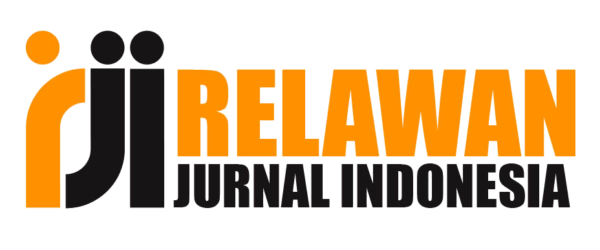Efektivitas Inkuiri Terbimbing Menggunakan CVS (Control Of Variable Strategy) terhadap Keterampilan Proses Sains Siswa dalam Pembelajaran Fisika
Abstract
Pembelajaran baik merupakan hal yang sangat penting dalam melatih keterampilan siswa. Tujuan penelitian ini adalah untuk mengetahui efektivitas pembelajaran inkuiri terbimbing menggunakan CVS (control of variable strategy) terhadap keterampilan proses sains siswa. Metode penelitian yang digunakan yaitu Quasy-experiment dengan desain penelitian Nonequivalent Control Group Design. Sampel pada penelitian ini kelas XI terdiri dari 32 siswa kelas ekperimen dan 28 siswa kelas kontrol di salah satu SMA Negeri di kota Bandung. Instrumen penelitian ini berupa 20 soal pilihan ganda menggunakan instrumen keterampilan proses sains. Analisis penelitian ini menggunakan uji perbedaaan, uji peningkatan n-gain, dan uji effect size. Hasil penelitian menunjukan bahwa pembelajaran inkuiri terbimbing menggunakan CVS efektif dalam meningkatkan keterampilan proses sains siswa berdasarkan adanya perbedaan yang signifikan antara kelas kontrol dengan kelas eksperimen, uji n-gain pada tiap kelas menunjukan kelas eksperimen berada pada kategori sedang sedangkan kelas kontrol berada pada kategori rendah, dan uji effect size berada dalam kategori sedang.
Kata Kunci: CVS (Control of Variable Strategy), Inkuiri Terbimbing, Keterampilan Proses Sains
ABSTRACT
Good learning is very important in training student skills. The purpose of this study was to determine the effectiveness of guided inquiry learning using CVS (control of variable strategy) on students' science process skills. The research method used is Quasy-experiment with the research design Nonequivalent Control Group Design. The sample in this study class XI consisted of 32 experimental class students and 28 control class students in one of the public high schools in Bandung. The research instrument was 20 multiple choice questions using science process skills instruments. The analysis of this research uses the difference test, the n-gain test, and the effect size test. The results showed that guided inquiry learning using CVS was effective in improving students' science process skills based on a significant difference between the control class and the experimental class, the n-gain test in each class showed that the experimental class was in the medium category while the control class was in the low category. and the effect size test is in the medium category.
Kata kunci : CVS (Control of Variable Strategy), Guided Inquiry, Science Process Skills
Full Text:
PDF (Bahasa Indonesia)References
Erawati, M. (2018). Penggunaan Metode Pendekatan Ketrampilan Proses Untuk Meningkatkan Aktivitas Hasil Belajar IPA Siswa Kelas III Sekolah Dasar. Jurnal Primary Program Studi Pendidikan Guru Sekolah Dasar Fakultas Keguruan dan Ilmu Pendidikan Universitas Riau, 7, 75-87.
Hake, R. R. (2002). Relationship of individual student normalized learning gains in mechanics with gender, high-school physics, and pretest scores on mathematics and spatial visualization. In Physics Education Research Conference, Vol. 8(1), 1-14.
Harmelen, E.V. (2017). Combining direct instruction on the Control-of-Variables strategy with task segmentation: Is there a positive synergistic effect?. (Tesis). Faculty of Behavioral, Management and Social Sciences, Department of Instructional Technology, University of Twente, Netherlands.
Nurhayani, I., Haris A., & Khaeruddin. (2018). Keterampilan Proses Sains Fisika Peserta Didik Kelas XI IPA SMA Negeri 8 Maros. Jurnal Sains dan Pendidikan Fisika. Jilid 14 (2), 23 – 30.
Nurinsani, E.A., Imansyah, H., Utari, S., Saepuzaman, D., & Bashori, H. (2018). Penerapan Levels Of Inquiry (LOI) untuk Mengembangkan Kemampuan Bereksperimen dan Peningkatan Penguasaan Konsep Fluida di SMP. Jurnal Wahana Pendidikan Fisika, Vol.3 (1), 114-119.
Rustaman, N. (2007). Keterampilan Proses Sains. Makalah. Sekolah Pascasarjana Universitas Pendidikan Indonesia. Bandung: tidak diterbitkan.
Sahyar, Hastini F. (2017). The Effect of Scientific Inquiry Learning Model Based on Conceptual Change on Physics Cognitive Competence and Science Process Skill (SPS) of Students at Senior High School. Journal of Education and Practice, Vol. 8 (5), 120-126.
Sarwi, Sutardi, & Prayitno, W.W. (2016). Implementasi Pembelajaran Fisika Guided Inquiry Untuk Meningkatkan Penguasaan Konsep dan Pengembangan Karakter Konservasi Siswa. Jurnal Pendidikan Fisika Indonesia, Vol. 12 (1), 1-7. DOI: 10.15294/jpfi .v12i1.4264
Schalk, L., dkk. (2019). Improved Application Of The Control-of-Variables Strategy as a Collateral Benefit of Inquiry-Based Physics Education in Elementary School. Learning and Instruction, 59, 34–45. https://doi.org/10.1016/j.learninstruc.2018.09.006
Stender, A., Schwichow, M., Zimmerman, C., & Härtig, H. (2018). Making inquiry-based science learning visible: the influence of CVS and cognitive skills on content knowledge learning in guided inquiry. Journal: International Journal of Science Education, 1464-5289. DOI: 10.1080/09500693.2018.1504346
Thalheimer, W., dan Cook, S. (2002). How to Calculate Effect Size from Published Research: A Simplifed Methodology. A Work Learning Research Publication.
Turnip, A., Wahyuni, I., & Tanjung, Y.I. (2016). The Effect of Inquiry Training Learning Model Based on Just in Time Teaching for Problem Solving Skill. Journal of Education and Practice, 7, 177-181.
DOI: https://doi.org/10.17509/wapfi.v6i1.32390
Refbacks
- There are currently no refbacks.
Copyright (c) 2021 Rima Nurul Fajriyati, Heni Rusnayati, Saeful Karim

This work is licensed under a Creative Commons Attribution-ShareAlike 4.0 International License.
The Journal Wahana Pendidikan Fisika http://ejournal.upi.edu/index.php/WapFi/ is licensed under a Creative Commons Attribution-ShareAlike 4.0 International License
The Journal WaPFi (Wahana Pendidikan Fisika).
All rights reserverd. pISSN 2338-1027 eISSN 2685-4414
Copyright © Faculty of Mathematics and Science Education (FPMIPA) Universitas Pendidikan Indonesia (UPI)










